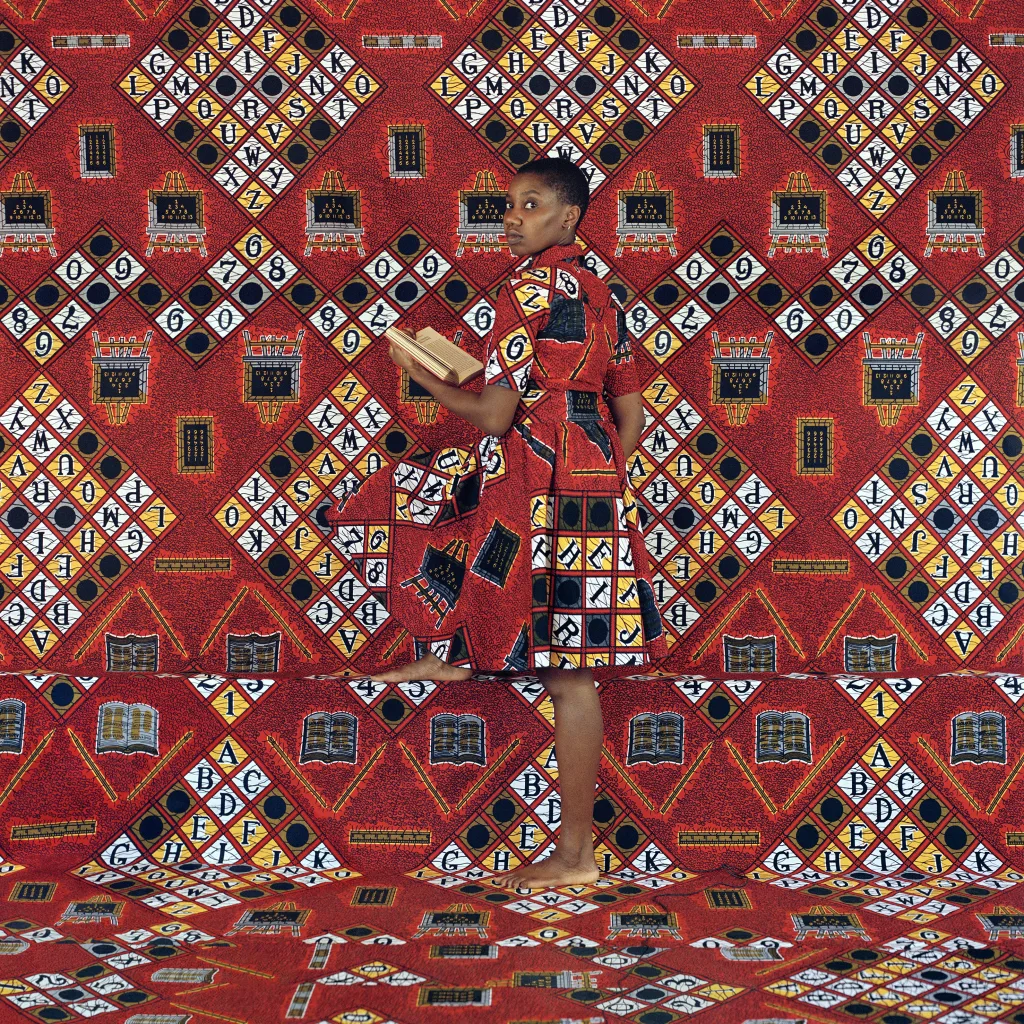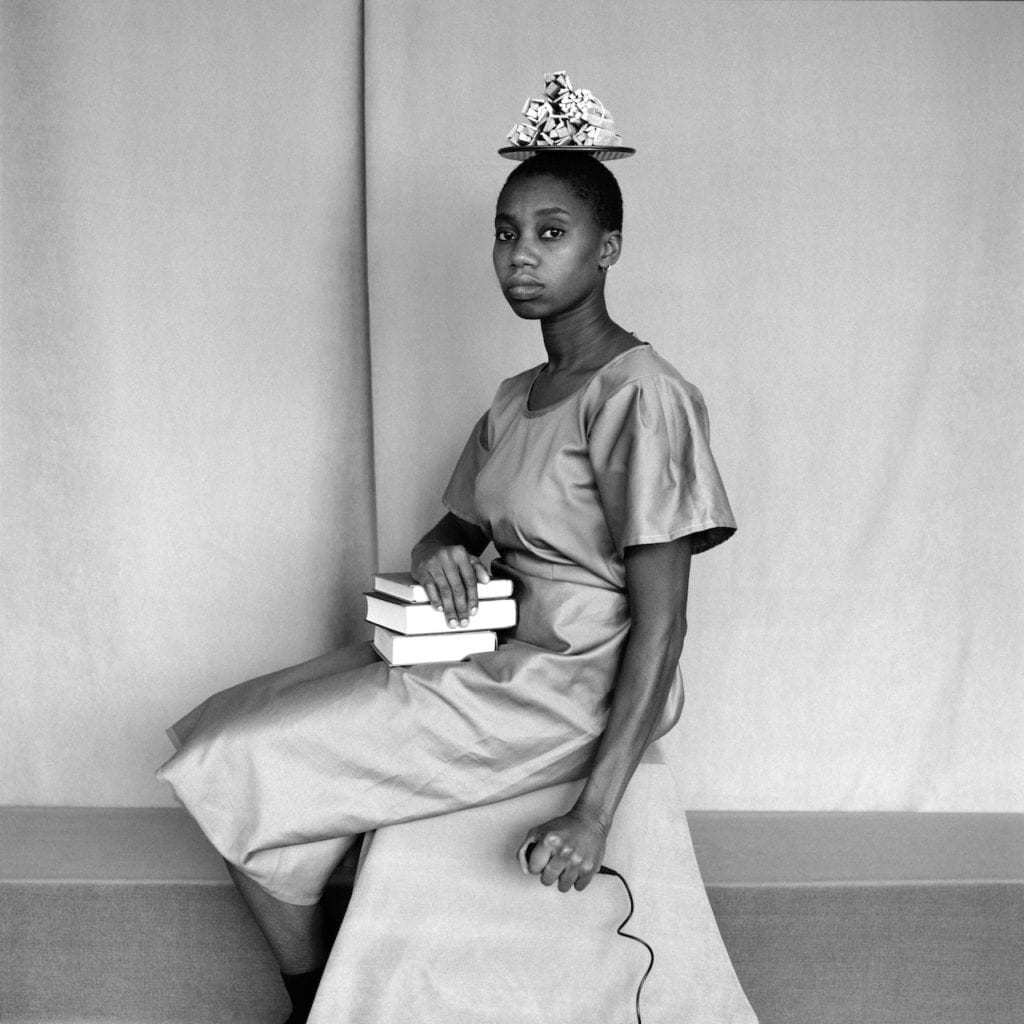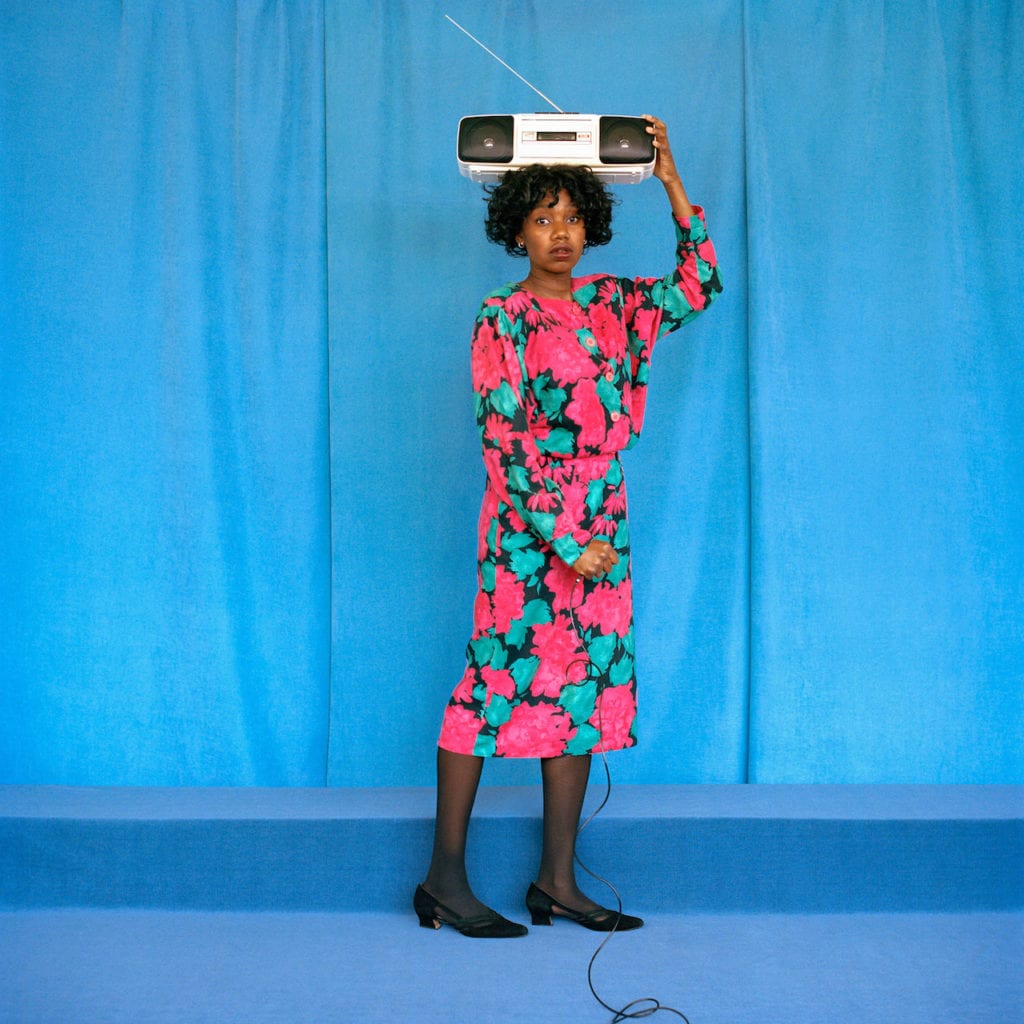Italian-Togolese artist Silvia Rosi (b. 1992) explores post-colonial themes such as migration, identity and collective memory from a diasporic perspective in an interplay of staged photography, video, performative elements and edited archive material. Her works, which often have autobiographical references, question the constructions of identity and belonging and create a dialogue between past and present. In ‘Protektorat’, Rosi sheds light on the complex history of language under colonial occupation in Togo. Based on archive material from the Togolese National Archives in Lomé, Rosi thematises the mechanisms of power and resistance that are anchored in colonial language policies. Administered as a German so-called protectorate from 1884 to 1914 and later placed under British-French military administration, the languages German, English and French still shape Togo today. At the same time, the indigenous languages Ewe and Mina have been preserved through oral tradition despite systematic suppression.

‘Protektorat’ presents video works and staged studio shots inspired by the aesthetics of West African studio photography of the 1960s and 1970s as well as archive images that Rosi deliberately alienates in order to question colonial pictorial logics. Textiles play a central role in Rosi‘s artistic practice: wax prints with alphabet patterns refer to colonial influences and at the same time to the history of the Africanisation of such fabrics by Togolese market women. Some portraits are printed on this very cotton fabric, giving an additional material layer to Rosi‘s exploration of Togo‘s history. A new, multilingual video installation adds a playful element. It shows four Togolese protagonists playing the board game Ludo, similar to the game Mensch ärgere dich nicht, which is familiar in Germany. Originally created during the British colonial period in India, the game serves as a metaphor for the arbitrariness with which the Togolese population had to navigate colonial language policies. In each round, it is decided at random which language will be spoken – only the person who speaks Ewe remains silent. The suppression of indigenous languages and the absurdity of colonial power relations are thus made tangible in a subtle way.

In ‘Protektorat’, Silvia Rosi interweaves postcolonial criticism with personal and playful moments. She questions archives as supposedly neutral places of collective memory and at the same time offers new perspectives on the culture of remembrance in a diasporic context. Presented by C/O Berlin, ‘Protektorat’ is Rosi’s first solo exhibition in Germany, and is accompanied by a comprehensive publication. The exhibition opens on the 1st of February and will run until the 7th of May 2025.
Rosi’s other works include ‘Encounter’ which is a fictional representation of her family album, exploring tales of migration and diaspora through self-portraiture, performance and symbolism. Inspired by an image from her own family album, of her young mother as a market trader in Lomé Togo, Rosi retraced her parents’ journey of migration from Togo to Italy. This is a story that is both deeply personal and at the same time universal. With her mother as source and muse, Rosi performs her family narrative recreating both visual and oral histories through the combination of photography, text and video. She references the aesthetics of West African studio portraits through the use of backdrops and props. The act of head carrying, a skill traditionally passed on from mother to daughter, is central to the work, learned and performed by Rosi in an attempt to regain a tradition that has been lost through migration and her position as a European.



